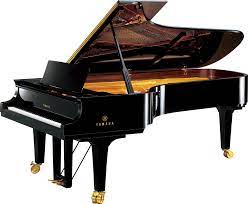
Introduction
Learning to play the piano is a rewarding journey that opens up a world of musical expression. At the heart of this journey are piano chords, the building blocks of most songs. Customised piano lessons is a type of music lessons that demystify piano chords and make the it accessible to everyone.
The Michael Avery School of Music in Australia offers comprehensive music lessons, with a special focus on understanding piano chords. These lessons are designed to demystify piano chords and make them accessible to everyone, from beginners to advanced students.
The curriculum covers chord theory, chord progressions, and provides ample practice opportunities. By the end of the course, students will have a solid understanding of piano chords and be able to play a wide range of music across different genres.
What are Piano Chords?
Piano chords are a group of notes played together at the same time. They form the harmony of a song and provide the musical backdrop against which the melody unfolds. Chords can consist of two or more notes. The most common chords are triads, which consist of three notes: the root, the third, and the fifth.
The Science Behind Piano Chords
Understanding the science behind piano chords can greatly enhance your playing skills. Each chord is made up of a specific combination of notes, and these combinations create different sounds. For example, a major chord creates a happy sound, while a minor chord creates a sad sound. This is due to the intervals, or distances, between the notes in the chord. By understanding these intervals, you can predict the sound a chord will produce before you even play it.
Piano chords are a fascinating aspect of music theory and play a crucial role in creating the harmony in a piece of music. They are essentially a group of notes that are played together, and depending on how these notes are arranged, different types of chords are formed.
Here are some key types of piano chords:
- Major Chords: These are bright and happy sounding chords, formed by combining the root, major third, and perfect fifth notes of the major scale.
- Minor Chords: These chords have a sadder sound, and are formed by combining the root, minor third, and perfect fifth notes of the minor scale.
- Seventh Chords: These are four-note chords that add a seventh interval on top of a triad, creating a richer sound. There are different types of seventh chords depending on the type of triad and seventh used.
- Diminished and Augmented Chords: Diminished chords have a tense and dissonant sound, while augmented chords sound unresolved. They are formed by altering the fifth note of a major or minor chord.
- Suspended Chords: These chords create a sense of anticipation, as if the music is suspended in mid-air. They are formed by replacing the third of a major or minor chord with a second or fourth.
Understanding these chords and how to transition between them smoothly is a key part of playing the piano. It allows you to play a wide range of music and even compose your own. At the Michael Avery School of Music, we focus on helping students master these chords through a combination of theory lessons and practical exercises. Our goal is to make learning piano chords an enjoyable and rewarding experience.
Importance of Understanding Piano Chords
Understanding piano chords is crucial for any aspiring pianist. Here’s why:
- Harmony: Chords create harmony in music. They add depth and richness to melodies, transforming simple tunes into full-bodied compositions.
- Versatility: Knowing chords allows you to play a wide range of music across different genres. Whether it’s pop, jazz, classical, or blues, chords are the common language of music.
- Improvisation: Chord knowledge is key to improvisation. It allows you to create your own music and adapt existing pieces in new and exciting ways.
The Role of Piano Chords in Music Composition
Piano chords play a vital role in music composition. They provide the harmonic foundation upon which melodies are built. Composers use chords to create tension and release in their music, leading to emotional responses from the listener. By understanding piano chords, you can start to see the patterns and structures in your favourite songs, giving you a deeper appreciation for the art of music.
Learning Piano Chords at Michael Avery School of Music
At the Michael Avery School of Music, we offer a comprehensive curriculum that covers all aspects of piano chords. Here’s what you can expect from our lessons:
- Chord Theory: We start with the basics, teaching you how chords are constructed and how to identify them by ear and sight.
- Chord Progressions: You’ll learn common chord progressions used in various genres of music. This knowledge will enable you to play many songs and understand their structure.
- Practice: Our lessons include plenty of practice opportunities. You’ll get to apply what you’ve learned by playing songs that incorporate the chords and progressions you’ve studied.
- Performance: As you progress, you’ll have opportunities to perform in front of others, helping you gain confidence and experience.
Advanced Piano Chords
As you advance in your piano lessons, you’ll start to encounter more complex chords. These include seventh chords, diminished chords, and augmented chords. These chords can add a new level of sophistication to your playing, allowing you to tackle more challenging pieces of music.
Conclusion
Understanding piano chords is a vital part of learning to play the piano. At the Michael Avery School of Music, we’re committed to making this learning process enjoyable and rewarding. Join us and embark on your musical journey today!
In conclusion, understanding piano chords is a fundamental part of learning to play the piano. It opens up a world of musical possibilities, allowing you to play a wide range of songs and even compose your own music. At the Michael Avery School of Music, we are committed to providing comprehensive and enjoyable lessons to help you master piano chords and enhance your musical journey. Whether you’re a beginner or an advanced player, we welcome you to join us and explore the wonderful world of music.
About Michael Avery School of Music
The Michael Avery School of Music is a leading music school in Australia. We are dedicated to providing high-quality music education to students of all ages and skill levels. Our experienced and passionate teachers are committed to helping each student reach their full musical potential. Whether you’re a beginner looking to learn the basics or an advanced player seeking to hone your skills, the Michael Avery School of Music is the perfect place to pursue your passion for music.
Write and Win: Participate in Creative writing Contest & International Essay Contest and win fabulous prizes.


